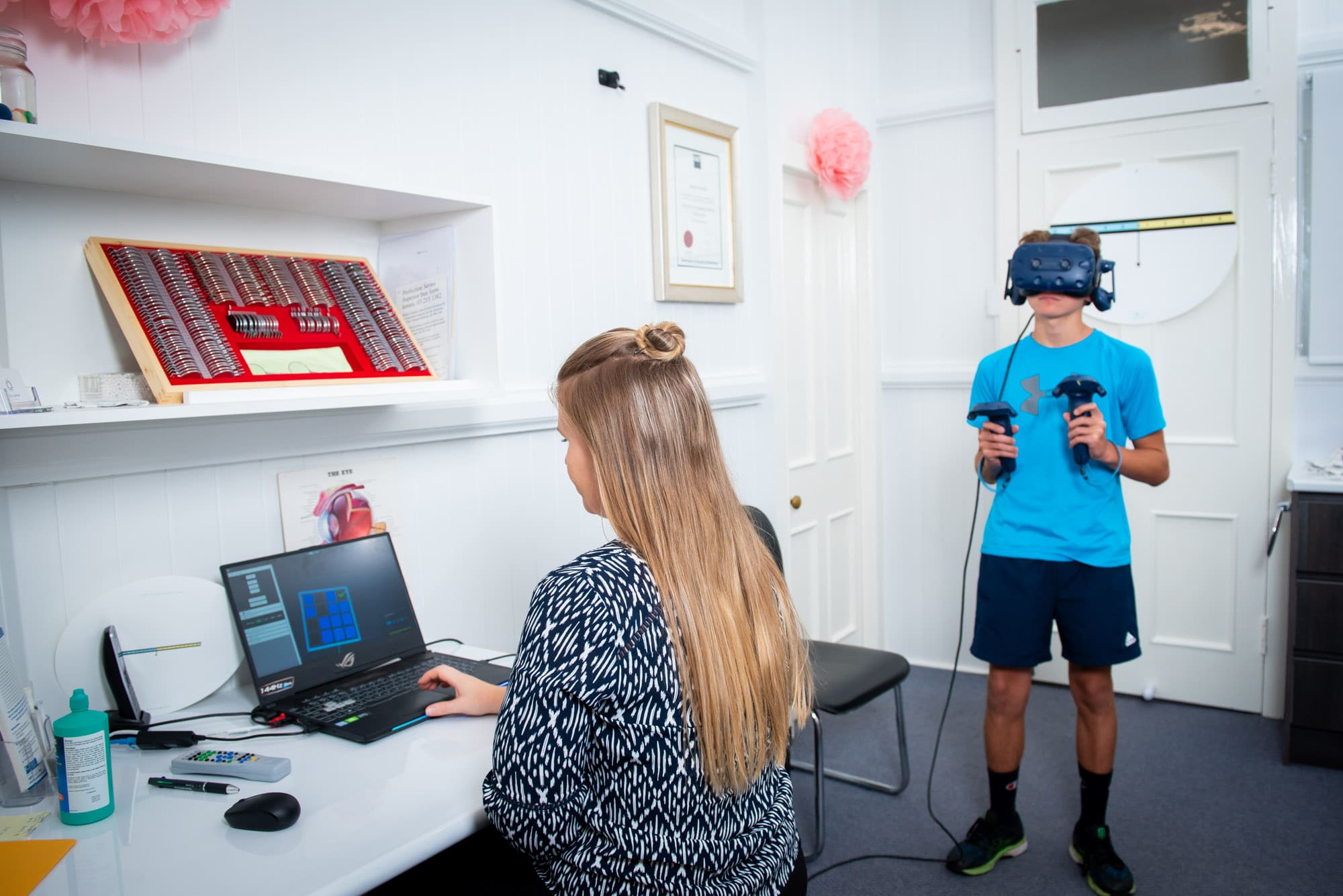Sports Vision Toowoomba | Sports Vision Highfields
Sports Vision
Vision is not only about how clearly you can see, it also involves 17 different visual skills that enable accurate, smooth, and precise eye movements for clear and comfortable vision— all necessary for many daily activities. These visual skills allow you to visualise, use your peripheral vision, switch visual focus between target points at varying distances, sustain focus on a moving target, and more.
Common signs that a vision problem is impacting your sports performance:
- Aversion to team sports
- Diminished interest in sports
- Difficulty catching or throwing, catching or hitting
- Inability to see the ball clearly
- Struggling to track the ball or other players
- Over or under estimating distances
- Poor sports performance even with strong athletic skills
- Improvement is not noticed even with practice
Visual skills necessary for sports performance
Sports activities require accuracy and speed for optimal performance. These skills allow you to track a ball as it flies through the air, stand in the correct location to catch a ball, and accurately pass the ball to another player.
Reduced visual skills will make it difficult to participate in sports activities and team sports— and may even lead to a poor self-image or self-esteem.
The following skills are essential for optimal sports performance:
1 Dynamic visual acuity
Dynamic visual acuity allows you to see moving objects clearly. This skill is essential for sports such as tennis, cricket, rugby, hockey, or soccer for the ability to clearly see the ball and other players while you and/or the other objects are moving quickly. This may require glasses or contact lenses to be worn to do this clearly.
2 Eye tracking
Eye tracking allows you to keep your eyes on the ball at all times, without moving your head— enabling the ability to maintain better balance and a faster response to the situation. This skill is essential for any fast paced sport, or any type of game played with a ball.
3 Eye focusing
Eye focusing allows you to change focus quickly and accurately between two distances (near and far). This skill is vital for playing all types of sports that involve looking at the goal in the distance, while managing and moving around the opponents up-close.
4 Peripheral vision
Peripheral vision allows you to see images and objects such as a team mate or opponent, “out of the corner of your eye” while fixating on a target (such as the ball). This skill is essential for all sports, for the ability to see what is going on all around you without having to turn your head. This is important especially for cyclists needing to assess the environment around them.
5 Depth perception
Depth perception (or 3D vision) allows you to quickly and accurately judge the speed and distance of objects. This skill is essential for estimating the location of the ball, teammates, opponents, boundary lines, goals, and other objects. Especially in tennis and cricket where the ball is small and fast.
6 Visual reaction time
Visual reaction time allows you to interpret and react to your team mate’s or opponent’s action, in an appropriately timed manner. This skill is vital for swinging a bat, catching a ball, or returning a tennis serve.
7 Eye-hand coordination
Eye-hand coordination allows you to react to incoming visual information with accurate body movements. This skill is essential for sports because it enables accurate timing and control over body movements, such as when swinging a bat, taking a shot, and shooting basketballs or netballs.
8 Visual memory
Visual memory allows you to interpret and remember a fast-moving, multi-detailed image, including both people and objects. This skill is essential for sports, specifically for “being in the right place, at the right time”— enabling you to remember the location of your teammates and opponents as you try to remain in control of the ball.
9 Visualisation
Visualisation allows you to imagine yourself succeeding, while at the same time concentrating on something else. This skill is essential for sports as it enables you to visualise yourself shooting the ball into the hoop, or hitting the perfect serve, while concentrating on the ball— imagining the success of your action facilitates the actual success. According to research, the areas of the brain that light up during performance, also light up when a person visualises the performance.
10 Visual concentration
Visual concentration allows you to maintain focus on an object or target, with the presence of distracting factors in your field of vision. This skill is essential for sports, specifically in situations when spectators are reacting or cheering around you, if an object is thrown on the court, or the timer on the scoreboard is approaching the end of the period.
Vision assessment and therapy for improved visual skills for sports
Most binocular vision conditions are caused by problems within the eye-brain connections, or the way that the brain processes the visual information coming in through the eyes— also known as visual processing. If a vision problem is detected, a program of vision therapy will help to retrain your visual system, to improve your vision skills.
Alternatively optical options may be necessary such as glasses, sunglasses (prescription and non prescription), sports glasses, safety glasses, goggles (prescription and non-prescription). Contact lenses can be a great option for sport, especially contact sports where glasses cannot be worn, so that the player can see to safely navigate in their environment and maintain their depth perception.
Vision therapy or virtual reality therapy may be helpful to improve eye tracking, depth perception, reaction time, peripheral awareness, eye focussing, hand-eye coordination, reaction time and visual memory. Book in for a binocular vision assessment and discuss any concerns with your optometrist.
Information sourced https://www.optometrists.org/general-practice-optometry/guide-to-sports-vision/what-is-sports-vision/
Virtual Reality Therapy



